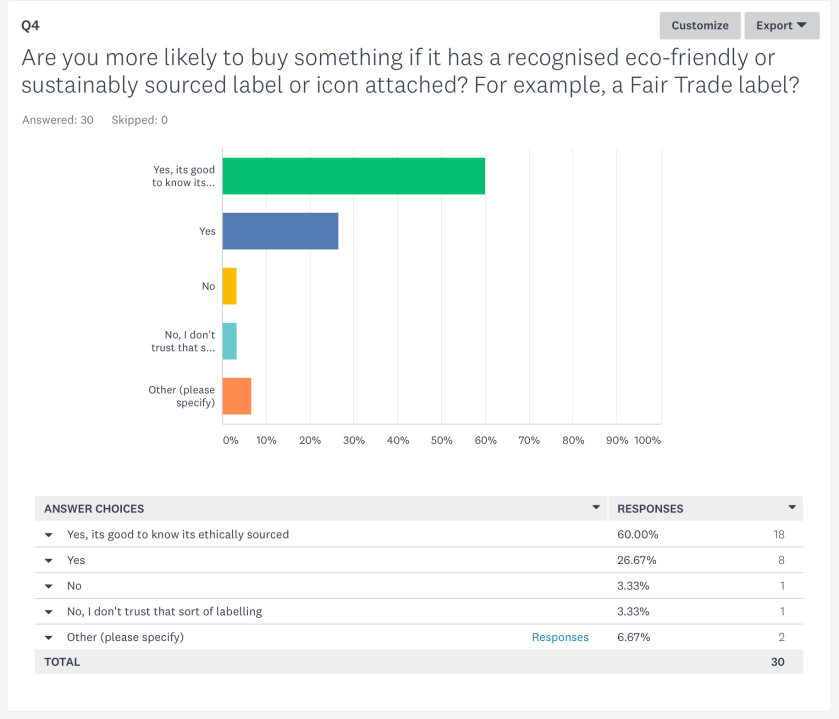Everyone’s heard the expression “whitewashing” — it’s defined as “a coordinated attempt to hide unpleasant facts, especially in a political context.”
“Greenwashing” is the same premise, but in an environmental context.
It’s greenwashing when a company or organization spends more time and money claiming to be “green” through advertising and marketing than actually implementing business practices that minimize environmental impact. It’s whitewashing, but with a green brush.
So greenwashing is when a company uses their marketing resources to make a consumer believe its more environmentally friendly or lower carbon-emission than it really is. Maybe one element on the surface of the product is fairly green – like the use of recyclable materials in the packaging – but below the surface manufacturer results in huge levels of water waste, energy consumption and other waste materials.
I created a short survey which I dispersed among my friends and on social media to see if people are aware of this idea.

Merging the top two answers, 86.67% said that they would go for eco-labelled goods. (In an earlier questions the results showed that this was generally food produce over anything else). Only one person gave an out right no and really interestingly only one said that they didn’t trust this labelling system. Custom responses were more about access to goods or the size of said labels on packaging.
I then asked this question directly:

So 23.33% believe its fully regulated (potentially 46.66% if you add answer 3) and one third believe that they can trust recognisable brands. Less than 20% have any distrust in the labelling system at all. Here’s the bombshell comparison:
A Terra Choice Group study in 2010 showed results that 95% of the companies that were advertising their consumer products as ‘green’ were greenwashing.
Thats a huge amount. And even more worrying that we are so unaware of it.
This survey only has 30 participants so is certainly not an absolute sample of the population but as it has an audience from 18 – 65 years, we’ll take it as a good starting point for investigation.
Question: If greenwashing is so widespread and unregulated, how to we educate people to ask the question whether something is really lower impact than the next product? If we advertise too much that greenwashing is everywhere, are we just going to discourage consumers from caring at all as they begin to believe its unavoidable?